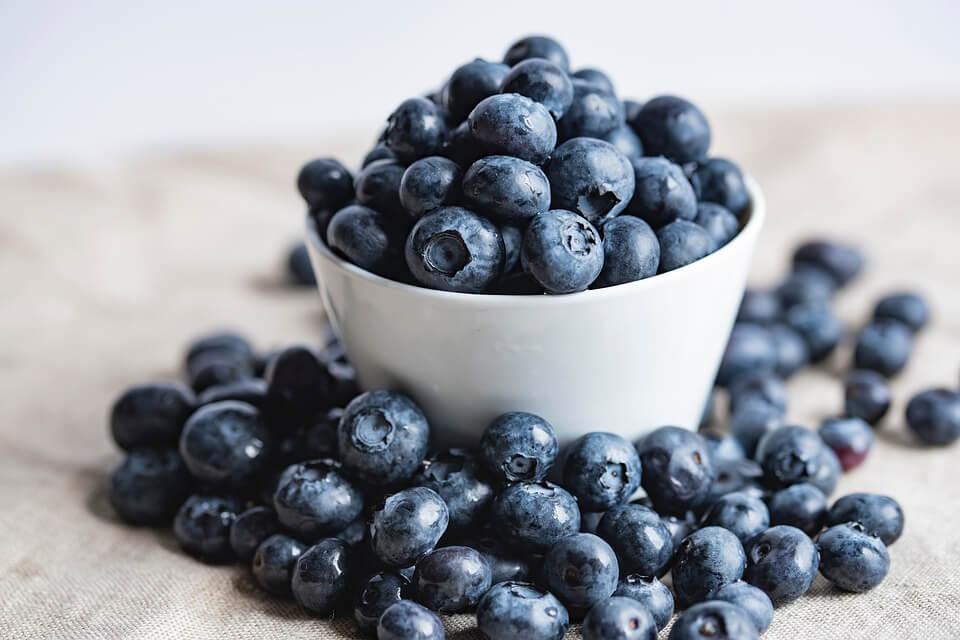By clothing-bag, 28/08/2022
Blueberries against cystitis: myth or reality?
La cistitis o infección de orina se produce cuando microorganismos colonizan el tracto urinario, siendo las infecciones bacterianas la causa más frecuente la cistitis, aunque el origen de las infecciones del tracto urinario también puede deberse a virus, hongos o parásitos. Con respecto a cómo tratar este problema, existe la creencia extendida entre la población de que el arándano es útil para su prevención. Pero, ¿qué efecto real tienen los arándanos en la prevención de la cistitis? ¿qué dicen los últimos estudios sobre la eficacia de estos frutos para evitar las infecciones del tracto urinario? “Existen evidencias científicas débiles de que los arándanos tienen un efecto positivo en la prevención de infecciones del tracto urinario en algunos grupos de pacientes, generalmente mujeres postmenopáusicas”, responde a CuídatePlus Jesús Redondo, miembro del grupo de infecciosas de la Sociedad Madrileña de Medicina de Familia y Comunitaria (Somamfyc) y miembro de la Sociedad Española de Medicina Familiar y Comunitaria (Semfyc).
In this regard, Josep Allué, a vowel of medicinal plants of the Official College of Pharmacists of Barcelona, agrees that the fruit of the blueberry has no effect on the urinary system."It is the fruit of the American red blueberry, of scientific name Vaccinium macrocarpon that presents an action in the urinary system," says Alláé, who mentions that from the European Fitotherapy Society (ERPP) this variety is indicated for the prevention of theurinary tract infections.
On why the red blueberry is recommended to prevent cystitis instead of other varieties, Redondo explains that it is due to the presence of components called proantocyanidines (PAC), which are those that exert the supposed beneficial effect."It has been shown in vitro that blueberries prevent bacteria that adhere to uro-epithelial cells in the bladder and without adhesion are unable to cause urinary infection".In this sense, Iván Espada, responsible for the Information Area of the Medication of the General Council of PharmaceuticalThey seem to be responsible for their urinary antiseptic effects ”.
Fruits, juices and blueberry supplements for cystitis
According to sword, the amount of proantocyanidins in fruits or juices vary depending on the different options present in supermarkets, therefore, when these products are consumed it is difficult to know how much proantocyanidines are being ingested."However, the products that we can find in pharmacies, with red blueberry in their composition, have a known amount of ingredients, having also passed through the relevant quality controls," says this pharmacist.As for the necessary amount of blueberries to act against cystitis, this expert reiterates that “the amounts of PAC present in the products with red blueberries will depend on the specific product” and continue: “To obtain information individualizes they can go to the pharmacy andrequest a pharmaceutical advice, on the most appropriate presentation for your needs ".

At this point, Allué comments that the recommendation of the ECP is to consume between 240 and 750 grams per day, distributed in 2-3 dose of liquid preparation, containing a 100 to 100% juice of the American red blueberry fruit, whilethat the World Health Organization proposes for the prevention of cystitis to take 30 to 300 ml a day of a preparation with 30% pure juice.Instead, the French Food Health Security Agency (AFSSA) is committed to a daily dose equivalent to 36 mg of PACS, either in juice or in dried extract."If the use of the American red blueberry is accompanied by an urinary washing action by sufficient liquid intake, the bacteria that cannot be fixed are eliminated in urination," the vowel of medicinal plants of the Official College of Pharmacists of Barcelona.
For its part, the member of the SomamfyC infectious group argues that the route of administration and the dose of blueberries that are more effective for the prevention of cystitis is unknown: “In a systematic cocchrane review (systematic review of health research)It was concluded that the majority of the studies of other blueberries (tablets and capsules) did not report how much active substance the product contained, and therefore, they could not have had enough power to be effective ”.In his opinion, from a scientific point of view the amount of blueberry that must be recommended to prevent cystitis is unknown.
And is the blueberry in some of its varieties to treat cystitis?The experts consulted by CUIDATEPLUS agree that there is not enough scientific evidence that supports the use of this fruit and its derivatives as a treatment of cystitis."In case of active urine infection, a doctor should be consulted to establish the most appropriate treatment for each patient," he advises sword."Cystitis and other infectious processes of urinary tract are serious diseases that must be treated by a doctor," adds Alláé.
Tips for cystitis
There are a number of self -care guidelines that help prevent cystitis, especially in women, since due to their anatomy they are more risk of suffering this type of infections;As the person in charge of the Information Area of the Medication of the General Council of Pharmacists recalls.In general, allué agree that following adequate hygiene measures can contribute to avoid urinary tract infections.Therefore, both experts recommend the following tips the prevention of cystitis:
“The symptoms can vary from one people to another, although it is usually felt stinging or discomfort when urinating: if we recognize the first symptoms or we have suspicion of a possible infection, it is important to go to the doctor and not self -medicate with antibiotics, since the bacterium or bacterium orbacteria, may not be sensitive to the effect of antibiotic, with the consequent risk of antimicrobial resistances, ”concludes sword.
Related Articles